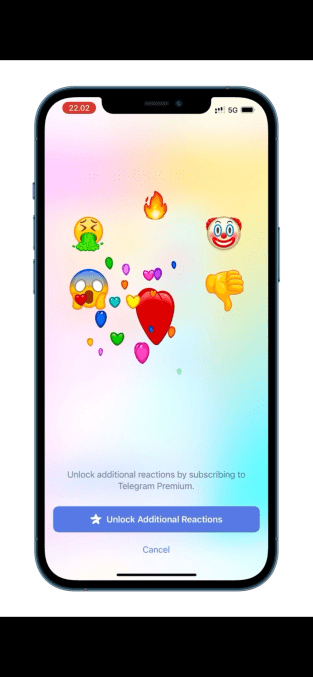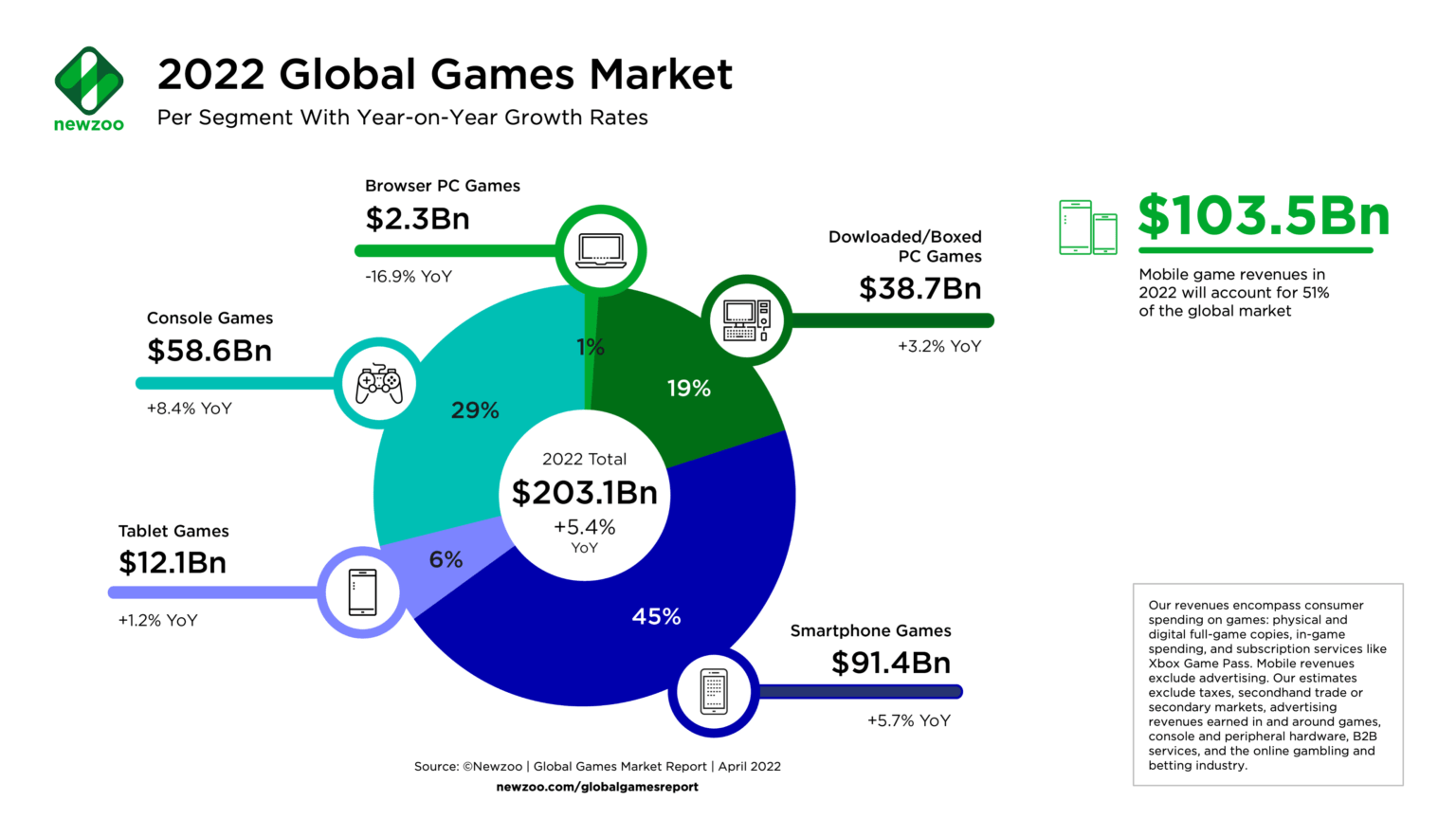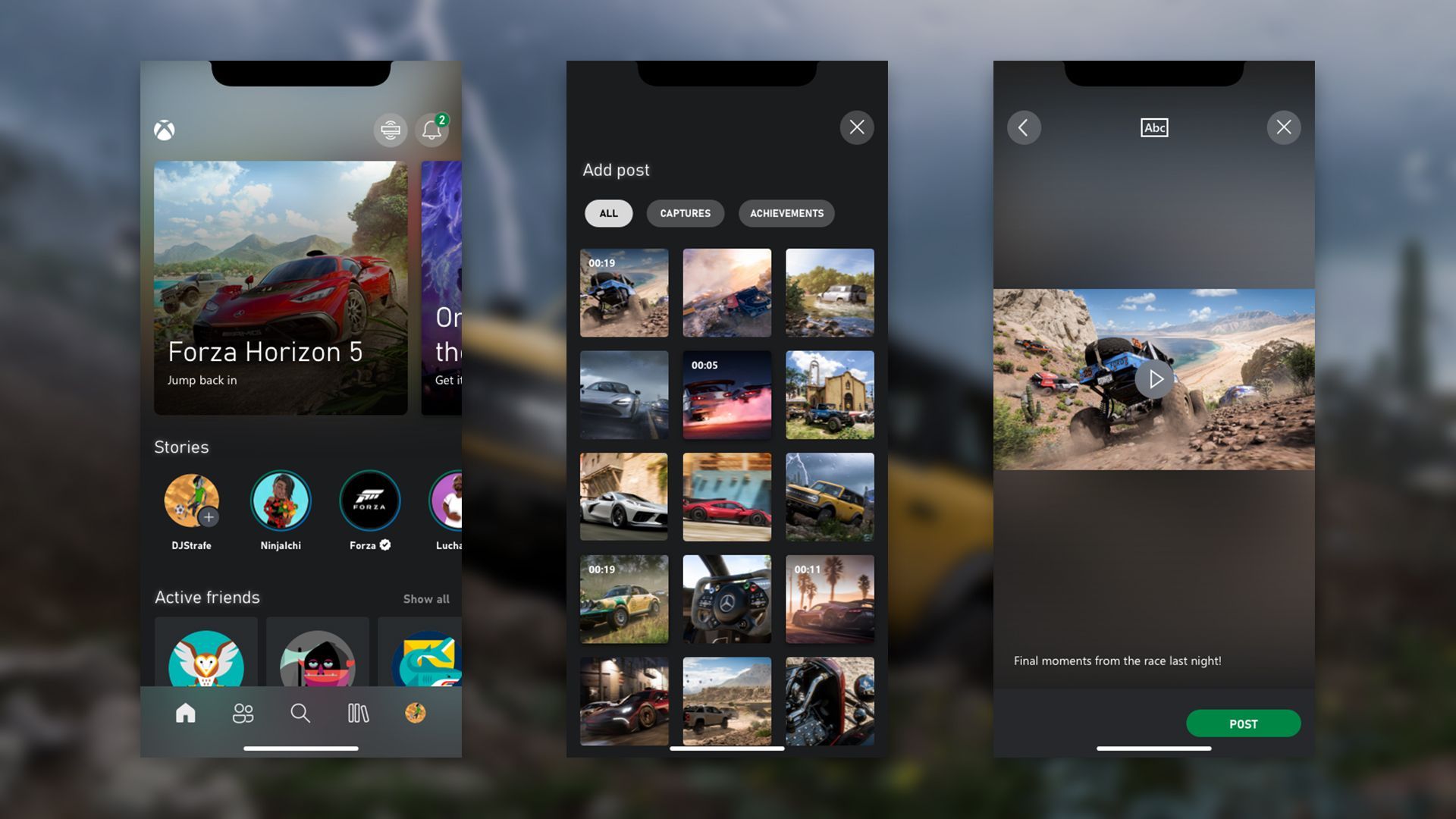Welcome back to This Week in Apps, the weekly TechCrunch series that recaps the latest in mobile OS news, mobile applications and the overall app economy.
The app industry continues to grow, with a record number of downloads and consumer spending across both the iOS and Google Play stores combined in 2021, according to the latest year-end reports. App Annie says global spending across iOS and Google Play is up to $135 billion in 2021, and that figure will likely be higher when its annual report, including third-party app stores in China, is released next year. Consumers also downloaded 10 billion more apps this year than in 2020, reaching nearly 140 billion in new installs, it found.
Apps aren’t just a way to pass idle hours — they’re also a big business. In 2019, mobile-first companies had a combined $544 billion valuation, 6.5x higher than those without a mobile focus. In 2020, investors poured $73 billion in capital into mobile companies — a figure that was up 27% year-over-year.
This Week in Apps offers a way to keep up with this fast-moving industry in one place with the latest from the world of apps, including news, updates, startup fundings, mergers and acquisitions, and much more.
Do you want This Week in Apps in your inbox every Saturday? Sign up here: techcrunch.com/newsletters
Top Stories
Fortnite finds its way back to iOS
Epic Games’ battle with Apple has seen its mobile gaming title Fortnite banned from the App Store ever since Epic broke Apple’s rules around in-app purchases, then used its ban to wage a legal fight over antitrust issues. But this week, Epic Games found a way to return to the iPhone, and with the help of a notable partner, too. The company teamed up with Microsoft’s Xbox Cloud Gaming service which runs games on the iPhone and iPad within the browser. Now Fortnite has joined the Xbox Cloud Gaming lineup, meaning customers on iOS will once again be able to play the popular game. The move follows Nvidia’s announcement earlier this year that Fortnite would become playable through its own GeForce Now service.
Of note, Microsoft said Fortnite is the first free-to-play title to join its cloud gaming service, and says users won’t need a GamePass subscription in order to play it. All users need to do is go to Xbox.com/play on their device’s web browser, then sign-in with their Microsoft Account to get started.
“It’s an important step to add a Free-to-Play title to the cloud gaming catalog as we continue our cloud journey,” said Catherine Gluckstein, vice president and head of Product, Xbox Cloud Gaming, in a blog post. “We’re starting with Fortnite and will look to bring more Free-to-Play games people love in the future.”
Apps go to NewFronts!
This week, IAB’s NewFronts held its hybrid event where companies pitched their upcoming offerings to ad buyers. While a number of streamers were there to promote their lineups and new ad products, including an interesting set of new digital ad insertion features, several app makers, including Meta, Twitter, Snap and TikTok, were also in the mix, as they’re no longer just social networks but entertainment platforms in their own right. TechCrunch covered the event and the various announcements, which included the following:
- TikTok: The short-form video app introduced TikTok Pulse, a new contextual advertising solution that ensures brands’ ads are placed next to the top 4% of all videos on TikTok. Notably, the solution will also be the first ad product that involves a revenue share with creators, offering a 50/50 rev share. Ads can be targeted across 12 categories, like beauty, fashion, pets, gaming, TV & movies, auto, Spanish language, sports and recreation, and others, and can be purchased through the TikTok Ads Manager by selected buyers.
- Snap: The social app unveiled a Cameo partnership, a new ad format and more original programming during its presentation. The Snap x Cameo Advertiser Program lets Snapchat’s video advertisers partner with Cameo’s top talent to create custom short-form video ads for Snap. The new ad product, Snap Promote, offers content partners a way to expand beyond their organic reach with Snapchat’s For You feed on the Stories page. The company also expanded its slate of originals with programs from Simone Biles, La’Ron Hines, Marika Sila and Kairyn Potts and others, and renewed deals with “Charli Vs. Dixie,” featuring the TikTok stars, among others.
- Meta: The social network touted its creators and video usage at the event, with a highlight on Reels. Alongside the announcement, Meta informed creators it will now pay for original content in Facebook Reels. The company said it would pay specifically for original content and will roll out new “challenges” that allow creators to earn more as they complete different goals. Among some of the metrics it shared with advertisers: 50% of the time spent on Meta’s platforms now involves video; over 2 billion people watch videos with in-stream ads; and more than 700 million people are using AR effects each month.
- Twitter: The soon to be Elon-owned social network had to convince wary advertisers that its platform would still offer a brand-safe experience for their marketing messages after Elon Musk turns it into a “free speech” social network — a move that advertisers worry will mean hate speech and abusive content could become more prevalent. Twitter promoted its premium video and media partnerships to demonstrate that there would be higher-quality content they could position themselves against, including content from Condé Nast’s red carpet livestreams, live WBNA games, a show about what people are streaming from E! News and other content from Essence, Revolt and more.
Weekly News
Platforms: Apple
- Apple released its fourth betas of iOS 15.5 and iPadOS 15.5 to developers just a week after beta 3. The coming update will allow developers of reader apps to add a link to an external website so users can sign up and manage accounts outside the App Store. Apple also released watchOS 8.6 and tvOS 15.5.
Platforms: Google
- Google’s developer conference I/O is coming up next week, and the news of its new Wear OS device has already leaked. We’re expecting a big event with a focus on more than just Android and wearables, however. In previous years, Google used the I/O keynote to announce all sorts of projects across its many platforms and services.
E-commerce
- DoorDash stock rose 10%+ after reporting 35% sales growth during earnings. The company brought in $1.46 billion in revenue, ahead of estimates of $1.38 billion. But it also lost $0.48 per share instead of the expected $0.41.
- Amazon no longer allows downloads of digital content using its Android shopping app following the changes to the Google Play Store policy that requires apps to use Google’s own payment systems.
- Starbucks will begin selling NFTs this year, offering access to “unique experiences and benefits.” Details about the company’s plans were sparse, but it has brought in Adam Brotman, the architect of its Mobile Order & Pay system and the Starbucks app, to advise on the project, hinting at a mobile component.
- Shein became the most-downloaded app in the U.S. on May 3, passing TikTok, Instagram, Twitter and Amazon to gain the No. 1 spot, noted Marketplace Pulse.
Fintech
- Fintech Block reported its revenue down 22% YoY to $3.96 billion in its Q1 earnings, when Wall Street was expecting $4.1 billion; but profit was up 34% to $1.29 billion. Cash App’s bitcoin revenue, however, fell 51% YoY to $1.73 billion. The stock climbed 5% on the results.
- European crypto app installs grew to nearly 100 million in 2021, Sensor Tower said, and reached 300 million MAUs.
- Following last week’s layoffs, Robinhood launched Stock Lending, a way that retail investors can lend out any fully paid stocks in their portfolio for extra income.
- Stripe announced a new product, Financial Connections, a Plaid competitor that lets Stripe’s customers connect directly to their customer’s bank accounts. A bit of drama ensued.
Social
- A group of nearly two dozen investors, including Sequoia Capital, Andreessen Horowitz, crypto exchange Binance and asset management firm Fidelity and others, have invested over $7.1 billion to back Elon Musk’s $44 billion bid to acquire Twitter, according to a new filing out this week. Oracle co-founder Larry Ellison, who is also an investor in Tesla, was the largest investor, offering a check of $1 billion. This was followed by Sequoia ($800 million), VyCapital ($700 million), Binance ($500 million), and a16z ($400 million). Musk said the margin loan of $12.5 billion he received from Morgan Stanley and other banks has been cut to $6.25 billion as result. He also increased his equity commitment to $27.25 billion.
- Instagram began testing a full-screen home feed where both images and videos take up more screen space, similar to TikTok’s full-screen video feed. The test is clearly meant to better emulate the TikTok experience, but feels off due to the mix of formats, which makes it more difficult to interact and comment.
- Twitter rolled out new Spaces features, including access to analytics for hosts and co-hosts on mobile. The company is also testing a feature that will tweet out a Space card once hosts start the Space. And it’s adding more information about the Space in the card that appears at the top of users’ timelines.
- CNBC reported Elon Musk may serve as temporary CEO after his takeover of Twitter.
- Celeb greetings app Cameo laid off 87 people, a quarter of its workforce, citing changing market conditions and the need to balance costs with cash reserves. Protocol reported CTO Rob Post, marketing exec Emily Boschwitz, CPO Nundu Janakiram and Chief People Officer Melanie Steinbach were among the departures.
- Twitter’s open source Bluesky unit released early code for developers to test. The Authenticated Data Experiment (or ADX) is available on GitHub, but is not complete. Bluesky CEO Jay Graber said this release is the start of a semi-public development process.
- Instagram began testing a “Get Quote” button with select businesses on its app, which allows businesses to set up custom questions to ask customers prior to starting a conversation.
- Twitter began testing Twitter Circle, a feature similar to Instagram’s“Close Friends,” which allows users to post only to select friends and followers more privately. For people with larger follower bases, it’s a struggle to set up. It also defies what many today use Twitter for: attention.
- More news about Twitter’s edit button emerged. According to reverse engineer Jane Manchun Wong, the Edit Tweet button will allow users to create a new tweet with different content. But to make sure Twitter users know the tweet has been changed from the original, a label (alongside an icon of a small pen or pencil) will appear at the bottom of the tweet. The label’s text will simply say “Edited.” And if you click on the word “Edited,” you’ll be taken to the tweet’s edit history. Users will have 30 minutes to make tweet edits.
Dating
- Match named Zynga President Bernard Kim as its new CEO, replacing Shar Dubey. Kim has been president of Zynga since 2016 and has overseen global marketing, user acquisition, revenue, consumer insights, data science, product management, mergers and acquisitions, and communications. The change comes as Match has been making plans to create a “dating metaverse.”
- The news was announced alongside Match earnings, where it reported Q1 revenue of $799 million, up 20% year over year, above Wall Street estimates of $794 million and operating income up 10% year over year of $208 million, representing a 26% operating margin. Tinder reached 10.7 million paid subscribers.
- Alex Hofmann, a former president at musical.ly (now known as TikTok), founded 9count, a parent company to various apps including the friendship-making app Wink. Now he’s launching 9count’s latest addition: a dating app called Spark which shows you everyone around you in a grid, instead of asking you to swipe. But you can only receive messages from people if you’ve both liked each other.
Messaging
- Telegram’s new iOS beta hints at the company’s monetization model expansion. The beta offers reaction emoji and stickers for Telegram Premium subscribers, which are marked as Premium exclusives.

Image Credits: Telegram
- WhatsApp announced emoji reactions are now available in the latest version of the app and users can now share files up to 2GB in size, protected by end-to-end encryption. It also said it’s slowly rolling out the ability to add up to 512 people to a group. The features follow the news that WhatsApp is expanding with the launch of Communities, a way for organizations and larger groups to communicate via its app in a more structured way.
Streaming & Entertainment

Image Credits: Spotify
- Spotify became the first music streamer to launch on Roblox. The company debuted “Spotify Island,” a place where artists and fans will gather to play interactive quests, unlock exclusive content and buy artist merchandise. While it didn’t announce any plans for virtual concerts, the venue already includes a stage.
- Spotify is also shutting down its lightweight listening app, Spotify Stations, first launched in 2018. Unrelated to this, the company said it’s opening up editorial submissions for podcasters who want their podcast featured on its main app.
- iPhone users complain of a bug that’s causing the Apple Music app to install itself to the iPhone’s dock, booting out their other apps from their spots. Some said the bug also caused Apple Music to set itself as the default for Siri requests as well. Apple said it’s aware of the issue, but didn’t offer a comment.
- Google is shutting down the YouTube Go Android app for emerging markets, first launched in 2016. The app will close in August, with Google citing improvements to the main YouTube app as the reason.
- Facebook is killing its audio streaming projects. The company said it would shut down its podcasts service, will discontinue its short-form Soundbites feature, and will integrate Live Audio Room into Facebook Live. Bloomberg had earlier reported the changes were coming as the company wanted to focus more heavily on its short-form video efforts.
- Pinterest quietly launched a livestreaming app for video creators. The new Pinterest TV Studio app for iOS and Android will allow select creators to go live on Pinterest and use multiple devices in order to achieve different camera angles. The company didn’t announce the app’s debut — perhaps because it’s not broadly available to all creators at this time.
Gaming

Image Credits: Newzoo
- Games market revenues will surpass $200 billion for the first time in 2022 as the U.S. overtakes China, per a new report from Newzoo. Games in 2022 will reach $203.1 billion via consumer spending (+5.4% year on year) — a new record. Mobile game revenues will pass the $100 billion mark for the first time in 2022, growing +5.1% year over year to $103.5 billion.
- Netflix’s latest gaming addition is Relic Hunters: Rebels, a “looter shooter RPG,” and the first time the Relic Hunters series has appeared on mobile. The game, like Netflix’s others, has no ads or other monetization.
- miHoYo’s Genshin Impact has now reached $3 billion in global revenue on mobile since its September 2020 launch, according to Sensor Tower. Following its worldwide release, the title took 171 days to generate its first $1 billion on mobile, and has been averaging revenue of around $1 billion every six months, making it one of the most successful titles of all time.
- China’s gaming giant NetEase opened its first U.S.-based studio in Austin, Texas as China’s own gaming industry is slowing under new regulations. The game maker, whose portfolio includes mobile titles, is best known for the blockbuster Honor of Kings. The new Austin studio, Jackalope Games, is led by Jack Emmert, a veteran of massively multiplayer online role-playing games including City of Heroes, Neverwinter, Star Trek Online and DC Universe Online.
- The Xbox mobile app rolled out a new Stories feature allowing players to share their favorite gaming moments, including game clips, screenshots and achievements with their friends and the Xbox community.

Image Credits: Microsoft
Health & Fitness
- Dieting app Noom reportedly is cutting hundreds of its weight-loss coaches, after raising more than $500 million, per Axios.
- TechCrunch’s Carly Page takes a look at whether or not period tracking apps are now more of a privacy and security risk as a result of the U.S. Supreme Court’s plan to overturn Roe v. Wade.
Government & Policy
- Match Group’s latest Google Play Store complaint has triggered a Dutch antitrust probe by the Netherlands’ Authority for Consumers and Markets (ACM). The probe will examine to see if Google is abusing a dominant position, with regard to forcing businesses to use its own payments service for in-app purchases.
- PayPal and others have made informal complaints about Apple’s NFC restrictions to the European Commission, spurring the EU’s recent antitrust complaint, Bloomberg reported. The new complaint focuses on the fact that Apple reserves the iPhone’s tap-to-pay NFC abilities for its own Apple Pay service.
- The Netherlands Authority for Consumers & Markets (ACM) has concluded that the changes Apple made on March 30 related to the conditions for dating apps are still insufficient and a new penalty will be enforced.
- Epic Games-owned app Bandcamp is fighting back against the Google Play policy changes that will require apps to use Google’s own payments systems — a change it says it will either have to pass on to customers or address by disabling sales of digital goods in-app.
Security & Privacy
- Apple, Google and Microsoft announced plans to adopt features from the FIDO (“fast identity online”) Alliance, which is working on passwordless technology designed for websites and apps. Instead of using logins and passwords, websites could identify you with a fingerprint reader, face scanner or your phone.
- Mozilla analyzed 32 mental health and prayer apps and found that 29 had poor privacy protections and security practices and were collecting large amounts of personal data. Those with the worst practices included Better Help, Youper, Woebot, Better Stop Suicide, Pray.com and Talkspace.
- The WSJ reported that millions of Grindr users’ location data had been collected by a digital ad network and resold since at least 2017. Grindr said it has cut the data flow.
Funding and M&A
 Paris-based Alan, an app offering personalized mental health programs, raised €183 million in Series E funding led by Canadian Teachers Venture Growth. The round values the business at €2.7 billion.
Paris-based Alan, an app offering personalized mental health programs, raised €183 million in Series E funding led by Canadian Teachers Venture Growth. The round values the business at €2.7 billion.
 Canadian neobank app Neo Financial raised $145 million in Series C funding led by Valar Ventures after surpassing 1 million customers. The company offers a variety of products to its customers, including cash-back rewards, savings and investing, and is planning a mortgage offering for later this year.
Canadian neobank app Neo Financial raised $145 million in Series C funding led by Valar Ventures after surpassing 1 million customers. The company offers a variety of products to its customers, including cash-back rewards, savings and investing, and is planning a mortgage offering for later this year.
 SoundCloud acquired an AI music company Musiio, whose tech aims to identify which songs could be hits. The company says it will use this to enhance SoundCloud’s own music discovery experience. Terms were not disclosed.
SoundCloud acquired an AI music company Musiio, whose tech aims to identify which songs could be hits. The company says it will use this to enhance SoundCloud’s own music discovery experience. Terms were not disclosed.
 LottieFiles, a company that develops plugins for app developers to create, edit and test JSON-based Lottie animations, raised $37 million in Series B funding led by Square Peg Capital. LottieFiles is used by animation and motion designers at 150,000 companies, including Google, TikTok, Disney, Uber, Airbnb and Netflix.
LottieFiles, a company that develops plugins for app developers to create, edit and test JSON-based Lottie animations, raised $37 million in Series B funding led by Square Peg Capital. LottieFiles is used by animation and motion designers at 150,000 companies, including Google, TikTok, Disney, Uber, Airbnb and Netflix.
 Moysle, a company providing a mobile device management system for Apple devices, raised $196 million in Series B funding led by Insight Partners. The company now has 32,000 customers and says it’s seen “triple-digit” revenue growth since 2020.
Moysle, a company providing a mobile device management system for Apple devices, raised $196 million in Series B funding led by Insight Partners. The company now has 32,000 customers and says it’s seen “triple-digit” revenue growth since 2020.
 A mobile game called Wordle!, which benefitted from the web-based game of the same name that went viral (and is now run by The NYT), has come into the hands of AppLovin. Neither AppLovin nor developer Steven Cravotta were able to comment on the acquisition, but the game is now run by AppLovin’s studio Lion Studios Plus per its App Store listing. An Android version has also become available.
A mobile game called Wordle!, which benefitted from the web-based game of the same name that went viral (and is now run by The NYT), has come into the hands of AppLovin. Neither AppLovin nor developer Steven Cravotta were able to comment on the acquisition, but the game is now run by AppLovin’s studio Lion Studios Plus per its App Store listing. An Android version has also become available.
 South Korea’s RECON Labs raised $4.4 million to help shoppers visualize products when shopping by creating 3D models in AR, which can then be used within their own platforms. The company plans to launch a 3D creator’s app next year.
South Korea’s RECON Labs raised $4.4 million to help shoppers visualize products when shopping by creating 3D models in AR, which can then be used within their own platforms. The company plans to launch a 3D creator’s app next year.
 Iceland-based Sidekick Health raised a $55 million Series B led by Novator Ventures for its gamified digital care platform for healthcare apps and services. The company aims to have more than 40 medical-grade digital therapeutics by 2026.
Iceland-based Sidekick Health raised a $55 million Series B led by Novator Ventures for its gamified digital care platform for healthcare apps and services. The company aims to have more than 40 medical-grade digital therapeutics by 2026.
 India’s Zepto, a 10-minute grocery delivery app, raised $200 million in Series D funding, valuing the business at $900 million. Existing backer Y Combinator Continuity led the round. The app currently operates across 11 cities in India and sees hundreds of thousands of orders daily.
India’s Zepto, a 10-minute grocery delivery app, raised $200 million in Series D funding, valuing the business at $900 million. Existing backer Y Combinator Continuity led the round. The app currently operates across 11 cities in India and sees hundreds of thousands of orders daily.
from TechCrunch https://ift.tt/m5DeLKQ


0 comments:
Post a Comment